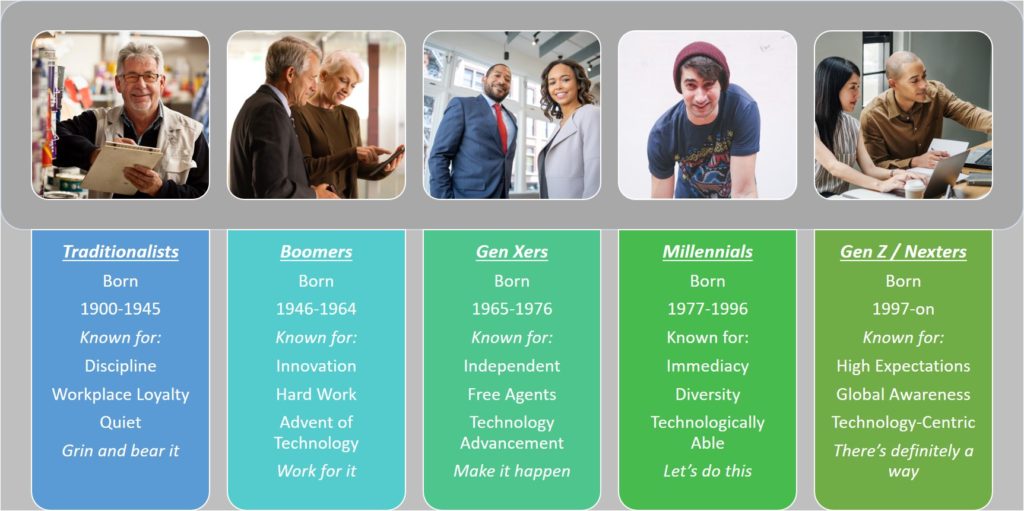Advocating for Yourself at Work (Part 1)
By Susan M Vitale

A topic I’ve been asked about often lately in workshops and training sessions is “How do I manage up?” or “How do I advocate for myself at work?” Just this week, I had four different people approach me to share their stories about feeling underestimated, not heard, or misunderstood by their manager. Each of them asked for advice on how to clearly and effectively state their needs, worries, or wishes to their boss. Essentially, they all needed to close a communication gap.
- One young woman needed her manager’s guidance to navigate a difficult relationship with a colleague.
- Another young man — passionate about his work — was desperate to improve his rapport and communication with a supervisor who was liberal with her critique but provided little insight to help him improve.
- A bright and enthusiastic Millennial approached me to ask how to tell her boss she was willing and ready to take on some of more responsibilities and play a larger role on the team.
- The most heartbreaking example was a woman who was ready to throw in the towel on the entire profession for which she’d trained the past 7 years because her pleas for help and resources were falling on deaf ears.

In part, these inquiries about “managing up” and “self-advocacy” have increased because today’s workforce faces unique challenges with, as the graphic above demonstrates, arguably five diverse generations trying to make sense of one another’s distinct needs, styles of communicating, and motivations. What’s more, steadily increasing workloads and high-stakes technological and organizational changes create an atmosphere where people at all levels are treading water. Well-intentioned and under-resourced managers, often fighting to keep their own heads above the ever-increasing waterline, may overlook the needs of their employees.

More devastating to today’s organizations, managers miss opportunities to grow, develop, and fully capitalize on the talent that stands right in front of them. This lack of communication and attention contributes to the exodus of younger generations from the workplace and partially explains why, in a recent Deloitte survey, almost half of Millennials surveyed envision leaving their jobs within two years.
My responses to the young people who asked for help varied depending on the specifics, but there are a few consistent threads that can serve in any situation. Let’s start with a few conditions that, when in place, increase the odds of success when you advocate for yourself at work.

- You consistently practice a service-mindset. Your manager and your organization rely on your efforts in order to succeed. Coming to work every day with a how can I be of service mentality sets the stage for you to be appreciated and noticed, teaches you to anticipate your manager’s needs, and gives you keen insight into the team or organization. When it comes time to advocate for yourself, you’ll have first-hand information about how your brand of support and service adds value and you’ll have a reputation for leaning in and working hard to support your boss and your colleagues.

2. Your performance is consistently solid, if not exceptional. I can’t tell you how many times I’ve seen employees push for a promotion or a raise, or demand recognition, when in fact, their current performance is at best, acceptable, and often, subpar. Part of the communication gap occurs because people don’t honestly know how they’re doing or how they are viewed. If you don’t know how your performance stacks up, begin your self-advocacy practice by asking: “How am I doing, and where can I make improvements?” Make sure expectations for good versus exceptional work are spelled out. Most importantly, make every effort to achieve the goals that have been agreed upon. If you’re struggling to deliver top performance, another prime chance to stand up for yourself is to request help, training, and resources to improve, to show your superior how ready you are to make a stronger contribution.

3. You can articulate how whatever you’re advocating for serves your team or organization. Again, a phenomenon I’ve seen too many times: An eager employee sets his/her sights on the next great thing – more responsibility, a coveted project, attending a professional conference, or working from home part-time. He or she boldly marches into the boss and lays out a detailed case, only to have the request denied — sometimes gently and with coaching to improve the odds next time, but most often with no explanation. So many of these attempts to advocate for oneself fail because they lack a dual-purpose. They serve the employee, but the value to the organization for that added responsibility, coveted project, professional conference, or work-from-home arrangement is not explicit in the conversation. Take the time to think about how your request will improve business results or how the absence of it has a negative impact. Anticipate and make the connection between your needs and your manager’s concerns.
Once you’ve secured these 3 conditions, you’re ready to prepare your case. Stay tuned for Part 2 of the Self-Advocacy series to learn how to approach your manager or supervisor and state your needs or goals clearly, respectfully, and effectively.

